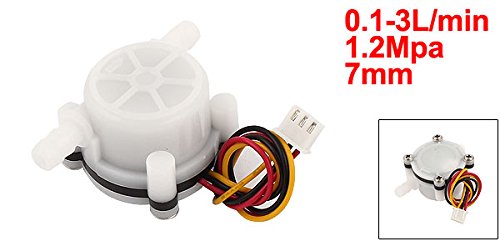NeverDie
Senior Member
Good ways to monitor the amount of effluent being dumped by a reverse osmosis filter? The problem is: out of sight, out of mind. On a short term basis I could just drain it into a bucket to gauge the volume being produced, but for longer-term maybe there's something inexpensive that's good for monitoring? The flow rate is slow enough, but it can add up. Yes, I could start a brand new search using Google or the like, but if someone else here has already done it and is happy with what they have, I'd appreciate a link or a pointer of some kind rather than start from square 1, get ripped off, or be left holding junk that doesn't last, etc.

